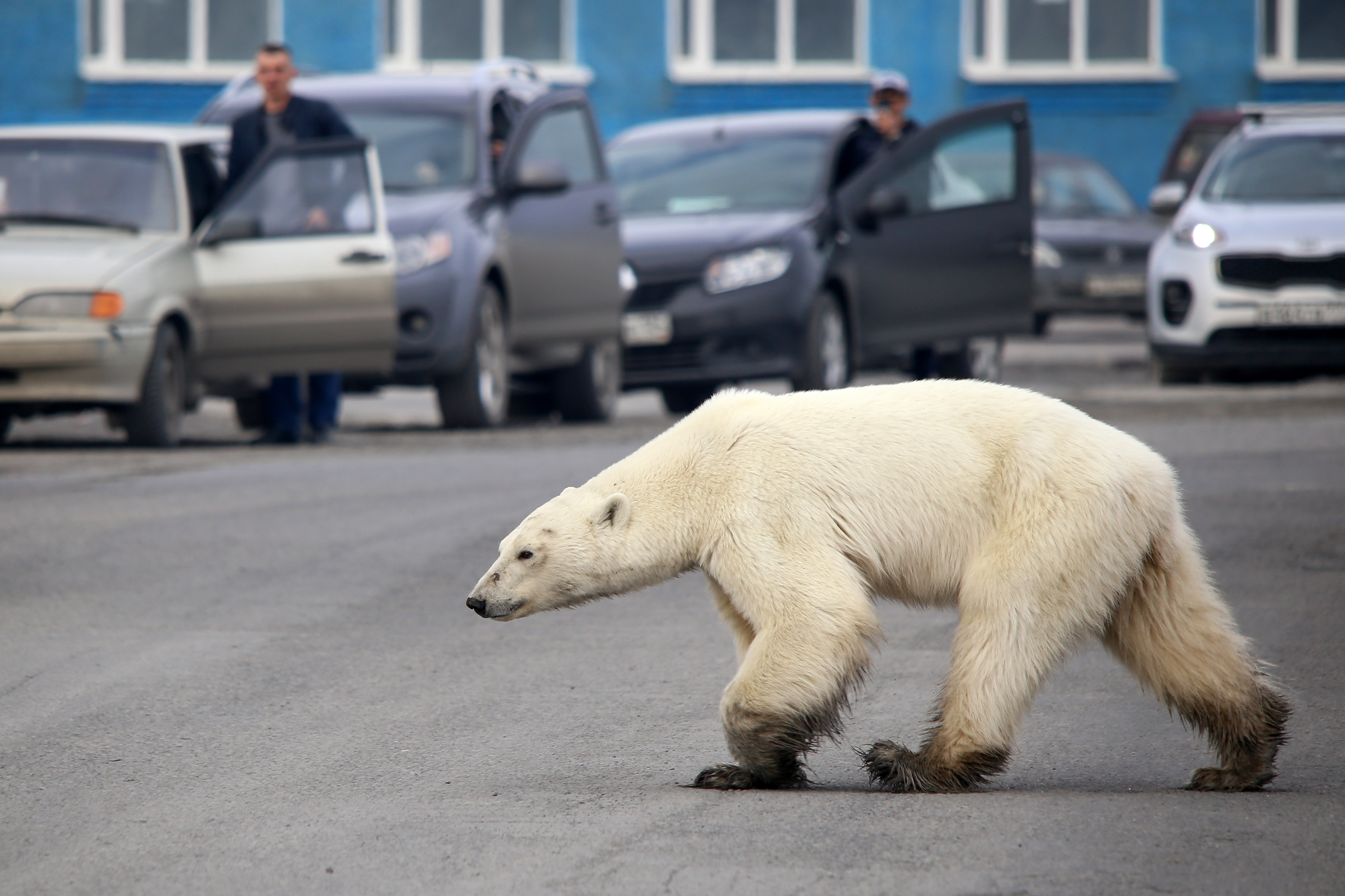Modern climate change is more intense than anything the Earth has seen in the past 2,000 years

A free daily email with the biggest news stories of the day – and the best features from TheWeek.com
You are now subscribed
Your newsletter sign-up was successful
Almost all scientists agree that climate change is being caused by humanity's affect on our world — but the general public isn't quite so convinced. Skeptics often say that even before humans were the reigning species on Earth, the average temperatures on the planet tended to fluctuate between warmer and colder periods. But a pair of new studies basically takes the wind out of that argument, finding solid proof that the climate change we're experiencing now is a direct result of human activity.
The studies, published on Wednesday in Nature and Nature Geoscience, both investigated our current climate and compared it to previous warm periods in the Earth's history. The first study concluded that while certain regions of the Earth have experienced fluctuations in climate before, modern climate change is the first time that the entire planet has warmed — at least in the last 2,000 years.
The second study, meanwhile, assessed the intensity of modern climate change. It found that, even during warm periods in the last 2,000 years, never before has the temperature risen so swiftly as it is now. Since the beginning of the 20th century, global temperatures have risen about two degrees, NBC News explained — and it could rise over five more degrees by the end of this century. That might not seem like a lot, but it's much faster than any other warming event in the last 2,000 years.
The Week
Escape your echo chamber. Get the facts behind the news, plus analysis from multiple perspectives.

Sign up for The Week's Free Newsletters
From our morning news briefing to a weekly Good News Newsletter, get the best of The Week delivered directly to your inbox.
From our morning news briefing to a weekly Good News Newsletter, get the best of The Week delivered directly to your inbox.
The conclusion? "We cannot discern any event that is remotely equivalent" to modern climate change, said Scott St. George, a geographer at the University of Minnesota, in a letter published alongside the two studies.
If there's any hope of reversing the effects of climate change, "it's time for everybody to wake up and make changes now," said Jennifer Hertzberg, a paleoclimatologist not involved in the research. Read more at NBC News.
A free daily email with the biggest news stories of the day – and the best features from TheWeek.com
Shivani is the editorial assistant at TheWeek.com and has previously written for StreetEasy and Mic.com. A graduate of the physics and journalism departments at NYU, Shivani currently lives in Brooklyn and spends free time cooking, watching TV, and taking too many selfies.
-
 6 exquisite homes with vast acreage
6 exquisite homes with vast acreageFeature Featuring an off-the-grid contemporary home in New Mexico and lakefront farmhouse in Massachusetts
-
 Film reviews: ‘Wuthering Heights,’ ‘Good Luck, Have Fun, Don’t Die,’ and ‘Sirat’
Film reviews: ‘Wuthering Heights,’ ‘Good Luck, Have Fun, Don’t Die,’ and ‘Sirat’Feature An inconvenient love torments a would-be couple, a gonzo time traveler seeks to save humanity from AI, and a father’s desperate search goes deeply sideways
-
 Political cartoons for February 16
Political cartoons for February 16Cartoons Monday’s political cartoons include President's Day, a valentine from the Epstein files, and more
-
 The plan to wall off the ‘Doomsday’ glacier
The plan to wall off the ‘Doomsday’ glacierUnder the Radar Massive barrier could ‘slow the rate of ice loss’ from Thwaites Glacier, whose total collapse would have devastating consequences
-
 Can the UK take any more rain?
Can the UK take any more rain?Today’s Big Question An Atlantic jet stream is ‘stuck’ over British skies, leading to ‘biblical’ downpours and more than 40 consecutive days of rain in some areas
-
 As temperatures rise, US incomes fall
As temperatures rise, US incomes fallUnder the radar Elevated temperatures are capable of affecting the entire economy
-
 The world is entering an ‘era of water bankruptcy’
The world is entering an ‘era of water bankruptcy’The explainer Water might soon be more valuable than gold
-
 Climate change could lead to a reptile ‘sexpocalypse’
Climate change could lead to a reptile ‘sexpocalypse’Under the radar The gender gap has hit the animal kingdom
-
 The former largest iceberg is turning blue. It’s a bad sign.
The former largest iceberg is turning blue. It’s a bad sign.Under the radar It is quickly melting away
-
 How drones detected a deadly threat to Arctic whales
How drones detected a deadly threat to Arctic whalesUnder the radar Monitoring the sea in the air
-
 ‘Jumping genes’: how polar bears are rewiring their DNA to survive the warming Arctic
‘Jumping genes’: how polar bears are rewiring their DNA to survive the warming ArcticUnder the radar The species is adapting to warmer temperatures